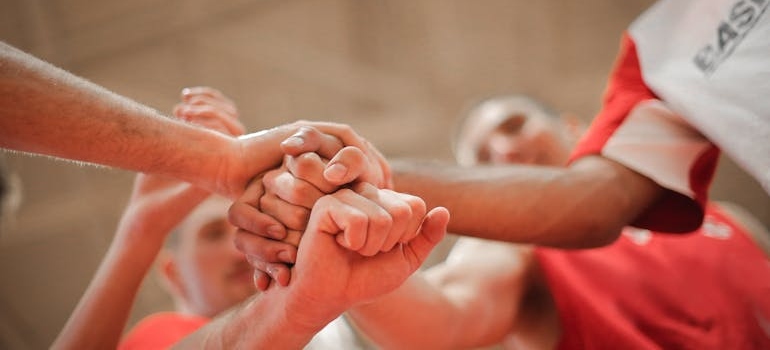Recovering from addiction is a journey, and exercise can be a vital part of your path to wellness. Whether you’re working with drug and alcohol treatment centers in West Virginia or managing recovery at home, integrating physical activity can transform your healing process. The benefits of exercise in addiction recovery are vast, from lifting your spirits and sharpening your mind to helping you sleep better at night. This article walks you through how exercise not only strengthens your body but also empowers your mind, aids in preventing relapse, and builds valuable social connections. Let’s explore these advantages together, showing you practical ways to make exercise a supportive ally in your recovery journey.
Boost Your Physical Health During Recovery
Improving your physical health during recovery is crucial, and exercise plays a vital role in this process. Physical activities not only rebuild your body’s strength and stamina but also enhance your overall health, making it easier to handle the demands of recovery. For rehab for seniors, choosing the right exercises is essential to ensure safety and effectiveness. Gentle options like walking, water aerobics, or light yoga can offer significant benefits without the risk of injury.

Engaging in these activities not only boosts your physical capabilities but also supports your recovery journey by enhancing your mental clarity and emotional stability. The benefits of exercise in addiction recovery extend beyond the gym or the walking track; they integrate into every aspect of your healthier, more resilient life.
Elevate Your Mental Health Through Exercise
Exercise can be a powerful tool in elevating your mental health, especially for professionals managing both career pressures and recovery. Engaging in regular physical activity reduces symptoms of anxiety and depression by releasing endorphins, the body’s natural mood lifters. For those in rehab for professionals, finding time for exercise can also serve as a break from the demands of work, offering a chance to clear the mind and refocus.
Incorporating routines like jogging, cycling, or even brisk walking can make a significant difference in how you handle stress and maintain mental wellness. These activities help stabilize your mood and improve your sleep, key factors in a successful recovery. Remember, taking care of your mental health through exercise isn’t just a part of recovery; it’s an investment in a healthier, more balanced future.
Stimulating the Brain’s Reward System with Exercise
Exercise does more than just strengthen your body—it also boosts your brain’s reward system. When you exercise, your brain releases dopamine, a “feel-good” neurotransmitter that plays a crucial role in motivation and pleasure. This natural boost is particularly beneficial in addiction recovery, where maintaining positive mental health is key.
Medication assisted treatment programs West Virginia residents recommend often incorporate exercise as a complementary approach to support recovery. This combination can be especially effective, providing both the chemical and behavioral support needed to build a new, healthy lifestyle. Integrating exercise into your recovery routine amplifies the benefits of both treatments, helping to stabilize mood, reduce cravings, and enhance overall well-being. Remember, each step you take in exercise brings you closer to a more balanced and rewarding life.
Exercise as a Powerful Tool in Relapse Prevention
Exercise is a cornerstone in the battle against relapse. By filling your schedule with regular physical activity, you reduce the gaps of idle time that can lead to temptation. This proactive approach not only keeps you physically fit but also mentally engaged, helping to ward off the triggers that might lead to a setback in your recovery journey.
Many drug rehab centers in WV recognize the value of this strategy and integrate exercise into their treatment programs. Whether it’s group sports, gym sessions, or simple walking exercises, these activities provide a dual benefit: they enhance physical health and fortify mental resilience. Engaging in exercise helps you develop a routine that supports sobriety, offering a healthy outlet for stress and a way to build a positive community around your recovery goals.

Sharpening Cognitive Skills Through Physical Activity
Physical activity is not just about staying fit; it sharpens your mind too. For young adults especially, incorporating exercise into their routine at a rehab center can greatly enhance cognitive functions like focus, memory, and decision-making. These improvements are crucial as they navigate the challenges of both recovery and their developmental stage.
At a rehab center for young adults, tailored exercise programs are designed to maximize these cognitive benefits. Engaging in regular physical activity helps clear the mind, making it easier to learn new skills and make better decisions. The benefits of exercise in addiction recovery extend far beyond physical health, offering young adults a solid foundation for personal and professional growth. Making exercise a habit can transform recovery into a powerful platform for lifelong resilience and success.
Fostering Social Connections with Group Exercise
Group exercise is more than just a way to stay fit; it’s a vital tool for building supportive networks in recovery. Participating in group activities such as fitness classes, team sports, or group walks can help forge bonds with others who are on similar journeys. These connections provide emotional support and accountability, which are essential for long-term sobriety.
In West Virginia, substance abuse treatment WV programs emphasize community-focused recovery support. They incorporate group exercises into their regimens, understanding that the social aspect of recovery is as crucial as the physical or psychological. Engaging in these group activities helps individuals in recovery feel less isolated, fostering a sense of belonging and mutual support that is critical for overcoming the challenges of substance abuse treatment. This communal approach reinforces recovery and promotes healthier lifestyle choices.

Building a Healthy Routine with Regular Exercise
Establishing a healthy routine through regular exercise is crucial in addiction recovery. It instills structure and discipline, fundamental aspects that underpin a successful recovery process. When you engage in consistent physical activity, you create a daily schedule that supports healthier choices and sharpens your focus on recovery objectives.
At a residential treatment center West Virginia inhabitants rely on structured exercise programs emphasize these benefits, helping individuals build routines that sustain them well beyond their time at the center. Regular exercise not only enhances physical health but also reinforces a disciplined approach to daily life, aiding long-term sobriety and well-being. This commitment to regular activity is a powerful tool in maintaining stability and continuing progress in recovery.
Using Exercise as a Natural Stress Reliever
Exercise is a powerful natural stress reliever that can be a vital part of your addiction recovery. Engaging in physical activity releases endorphins, your body’s natural painkillers and mood elevators, which can immediately improve your sense of well-being. This biochemical boost helps reduce stress and eases emotional turmoil, providing a healthy escape from daily pressures.
The benefits of exercise in addiction recovery extend beyond just physical health; they also include significant emotional relief. Whether it’s a quick jog, a yoga session, or just a walk in the park, regular exercise offers a reliable way to clear your mind and lower stress levels. Embracing this tool can help you maintain balance and support your journey to recovery.

Exploring Effective Exercises for Addiction Recovery
There’s a diverse range of exercises that can significantly aid in recovery, each offering unique benefits to both mind and body. In the journey towards healing and sobriety, finding the right physical activities can be a game-changer. From calming yoga stretches to the invigorating rush of a high-intensity workout, different exercises cater to varying needs and preferences.
We’ll explore some of the most beneficial exercises that have proven effective in supporting recovery. Whether you’re looking for something gentle or more challenging, there’s an exercise out there that can enhance your path to wellness. Let’s dive into these options and find what works best for you.
Boost Recovery with Aerobic Exercises
Aerobic exercises like running and swimming are fantastic for anyone on the road to recovery. These activities not only improve your cardiovascular health but also play a critical role in mental wellness. As you engage in these exercises, your body releases endorphins, those feel-good hormones that naturally elevate your mood and reduce stress. This is particularly beneficial as the benefits of exercise in addiction recovery extend to helping you manage cravings and maintain focus on your recovery goals.
Whether it’s a morning swim or a jog through your neighborhood, these forms of exercise can be tailored to fit into your daily routine, offering a practical and enjoyable way to enhance your physical and mental health. By integrating regular aerobic activity, you’re not just recovering; you’re rebuilding your life, step by step.

Strengthen Body and Mind with Resistance Training
Strength training and yoga are powerful allies in your recovery journey, offering more than just physical benefits. These activities strengthen your body and clear your mind, crucial as you work towards overcoming addiction. Engaging in regular strength training enhances muscle endurance and overall physical resilience, making you feel stronger and more capable. Yoga, on the other hand, extends its benefits to improving flexibility and balance, essential for physical health.
Both practices sharpen mental clarity and focus, which are essential for maintaining a commitment to recovery. They also help manage stress—a significant trigger in addiction—since stress can cause mental illness. Regular exercise like this not only reduces stress but also boosts your mood by triggering the release of endorphins, natural mood enhancers that combat depression. Integrating these forms of exercise into your routine can transform your approach to recovery, building a stronger, healthier, and more resilient you.
Mindfulness and Recovery: Practices That Heal
Mindfulness practices like Tai Chi and Qigong are powerful tools in recovery. These gentle exercises focus your mind and body, bringing numerous benefits to help heal from addiction. They’re not just physical activities; they’re forms of moving meditation that promote a deep sense of peace and well-being. Here are some of the health benefits of Tai Chi and Qigong:
- Reduce stress: They lower stress by calming the mind and reducing tension in the body.
- Enhance focus: Regular practice improves your ability to concentrate and stay present.
- Boost emotional regulation: These exercises help manage emotions, reducing instances of sudden mood swings.
- Increase physical balance and strength: While gentle, they enhance physical stability and strength gradually.
- Promote overall well-being: They improve sleep, lower blood pressure, and enhance digestive function.
Expert Insights on Exercise in Addiction Recovery Plans
Experts agree that exercise for recovery and sobriety isn’t one-size-fits-all. What works for one person might not suit another, and that’s perfectly okay. Health professionals emphasize the importance of tailoring exercise plans to fit your specific needs and recovery goals. Whether it’s a calming yoga session, a brisk walk, or an energetic group fitness class, the key is to find activities that you enjoy and can stick with over time.
This approach keeps you motivated and helps make exercise a regular part of your life, rather than a chore. It’s about building a positive habit that supports both your physical and mental health. Always remember, incorporating exercise into your recovery plan should boost your spirits and your health, helping you feel stronger every day in your journey toward sobriety.

Take the Next Step in Your Recovery with Exercise
Exercise isn’t just about getting fit; it’s a powerful tool in your recovery journey. The benefits of exercise in addiction recovery stretch far and wide, helping you feel better both physically and mentally. It strengthens your resolve, sharpens your mind, and gives you a healthy way to deal with stress and cravings. You don’t have to start big, a walk around the block or a few minutes of stretching each day can set the foundation for bigger changes. Every step you take in recovery is a step toward a healthier, happier you. Keep moving forward, and let exercise be a part of your path to wellness.



